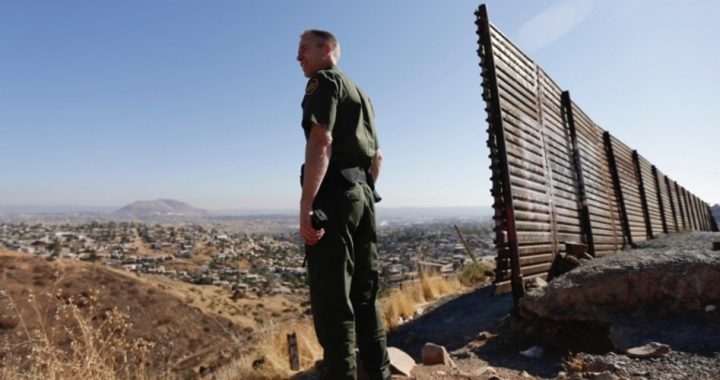
The U.S. Border Patrol has an immensely difficult job to do. They are tasked with stopping the flow of illegal immigrants and illicit drugs across our, still wall-less, southern border with Mexico. Not only must the Border Patrol contend with well-armed “coyotes,” chequadores, and cuidanderos who carry out and assist in the smuggling, human and otherwise, but they must also deal with irksome federal bureaucracies, which stand in the way of their efforts.
The Border Patrol’s efforts to keep America safe are being hindered by bureaucrats in the Environmental Protection Agency, the Interior Department, and the Forest Service. Efforts to fill in the tunnels that the “coyotes” use to smuggle people and drugs into the United States are being stalled by environmental impact studies, funding delays, and finding suitable subcontractors.
“I heard first-hand accounts from our Border Patrol agents that environmental red-tape is hindering their ability to secure the border,” Representative Bob Bishop (R-Utah) told Fox News recently.
Border Patrol agents have long complained about the bureaucratic nonsense entailed in doing their jobs. With the Interior and Forest Departments controlling a vast swath of land on the southern border, the Border Patrol is greeted with red tape whenever they try to patrol these lands. And the Coyotes know exactly where agents cannot patrol or monitor.
“There is no doubt that the restrictions on accessing land along the border have made it more difficult for the Border Patrol to do their job,” Senator Ted Cruz (R-Texas) said in 2014. “It seems a commonsense reform to say that the Border Patrol should be able to fully access and patrol the border.”
One especially protracted event occurred in February of 2015 when Border Patrol agents discovered a tunnel approximately three football fields long, near the town of Naco, Arizona. It was elaborate as well, boasting wooden supports and a concrete shaft complete with a hydraulic lift. Because of “environmental concerns,” that particular tunnel was open for nearly a year before being filled in. This meant the Border Patrol had to waste manpower for many months keeping an eye on the tunnel, when it could have just been rendered unusable in a day with a few earth-moving devices.
The Naco Tunnel incident occurred during the Obama administration, but the Border Patrol reports that it continues to fight federal bureaucracy in the age of Trump as well.
“Border security should never take a back seat to the EPA, when you consider the dangerous drugs that come into this country, such as Fentanyl,” said Brandon Judd, the president of the National Border Patrol Council. Fentanyl is a highly potent opioid, used sparingly by physicians for pain in extreme cases but also sold illegally. “That tunnel [in Naco, Arizona],” he said, “was assuredly used to bring Fentanyl into this country; and other dangerous drugs. They don’t use tunnels like that simply to bring in illegal immigrants. They use those for their high dollar products, such as illicit drugs.”
Bill H.R. 4760 is currently winding its way through the House of Representatives. The legislation includes language, written by Bishop, which would remove Border Patrol activities from the purview of the Departments of Agriculture and the Interior. The legislation would also exempt the Border Patrol from laws such as the Endangered Species Act and the National Environmental Policy Act.
“Our border patrol agents need the tools and authority to secure our southern border,” Bishop said. “And without streamlining the bureaucracy, that won’t happen.”
The legislation is a good start, but federal agencies have been playing bureaucratic monkey-in-the-middle with the Border Patrol over many things for a long time now. For instance, the Bureau of Land Management made the Border Patrol wait eight months simply to move an underground sensor in New Mexico. In another case, they were made to wait four months to move mobile surveillance units in Arizona. The Border Patrol is routinely denied permission to improve secondary and dirt roads along border area controlled by the federal government.
Constructing a wall will help on the southern border, but President Trump and Congress need to do some deconstruction as well; mainly on the bureaucratic mess in Washington.
Photo of U.S. Border Patrol agent: AP Images




